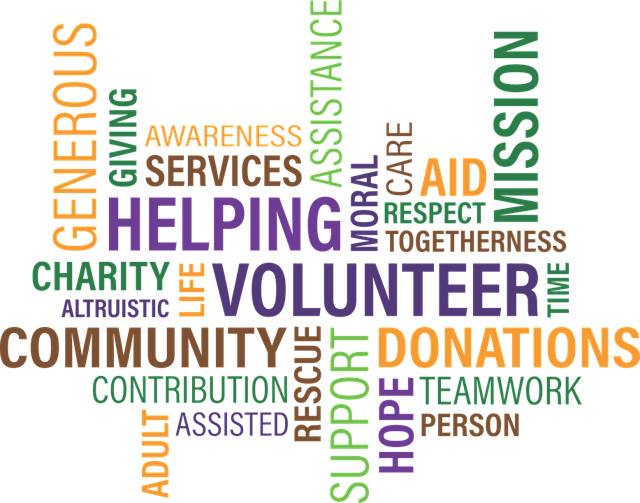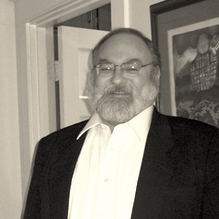 Paying kindness forward
Paying kindness forward I waited a year after my mother, z”l, passed away, before I was able to think about doing for others what the Chevrah Kadisha had done for my mother.
I read the manual which they gave me. My friend, Helene, suggested that I watch the first time and read the prayers in English as she read them in Hebrew. Having worked in hospitals and nursing homes I was not a stranger to illness and death, but this was not medical. This was spiritual and kind and gentle. It was easier for me than I had expected, it was even a relief.
The meitah, deceased woman, was cold. We covered her body and her face modestly. We called her by her Hebrew name as we apologized for any unintended disrespect. We noted that we were going to do the “best we could.” We quietly prepared the implements, assigned duties and began checking her for bandages, medical devices, nail polish, areas that needed special cleansing. We prayed the prayers in the manual and were comforted by the excerpts from the Song of Songs describing her beauty. We were reminded not to pass items over her, as her neshamah hovered just above her. We tried to remember not to stand at her head as the Shechinah hovered there. Occasionally we spoke to her in comforting tones, as we had read that the sense of hearing was the last to go. We knew she was listening. We reminded her that we intended only respect and kindness.
We cleaned her, combed her hair and then we ritually purified her with the 3 buckets of continuous flowing water and more prayer. We dressed her as the kohanim, the priests in the Temple, were dressed, with pure white garments. We lifted her into the plain pine box, wrapped her in a white cloth, after sprinkling her with earth from Israel’s Mount of Olives. We faced her feet towards the door, beginning her journey to Gan Eden, the garden of Eden. Again we addressed her and asked for her forgiveness.
The other women had done this many times before and still were moved and impressed with the significance of the moment.
I felt quietness envelope me as I had been privileged to participate in a transition from one level of existence to the next. What an honor it was to be there with her.
I saw and felt what these women had done for my mother. I felt reassured that this had been done for my mother, and one day would be done for me. I was so grateful. I was comforted and felt my mother must have felt comforted, too. These women, this Chevrah, was the embodiment (no pun intended) of Hashem’s feminine aspects: compassion, kindness, nurturing. In a way it was like I was a voyeur, sneaking a glimpse into the next world. I came away reassured.
Joyce Friedman, Ph. D. is a hospital neuropsychologist working in Physical Medicine and Rehabilitation. She is a professor and the first Jewish chaplain (non-military) in the state of Oklahoma. She is a longtime member of the 110 year old Oklahoma City Emanuel Synagogue Chevrah Kadisha. She is the new mother of 5 Brahma chickens. She davens with Chabad. She has taken multiple courses at the Gamliel Institute. 
_____________________
Gamliel Courses
The next course in the cycle of core courses offered by the Gamliel Institute will be Course 4 – Nechama/Comfort. It will be offered online during the Fall from October 9th to December 25th on Tuesday evenings, for 90 minutes each week for 12 weeks. The classes will begin at 5 pm PST/8 pm EST. Primary instructors will be Dan Fendel and Edna Stewart, with guest instructors.
Registration is now open – click here.
The course planned for Winter 2019 is Course 2 – Chevrah Kadisha: Taharah & Shmirah. Plan ahead! You can register online now.
___________
Gamliel Café
Gamliel Students are invited to a free informal online session, held monthly. On the third (3rd) THURSDAY of each month, different person(s) will offer a short teaching or share some thoughts on a topic of interest to them, and those who are online will have a chance to respond, share their own stories and information, and build our Gamliel Institute community connections. This initiative is being headed up by Rena Boroditsky and Rick Light. You should receive email reminders monthly. The next scheduled session of the Gamliel Café is October 18th. More details will be sent out soon.
If you are interested in teaching a session, you can contact us at rboroditsky@jewisgh-funerals.org, rlight@jewish-funerals.org, or info@jewish-funerals.org.
_______________
Gamliel Continuing Education Courses
Gamliel students should be on the lookout for information on a series of Gamliel Continuing Education Courses, advanced sessions focusing in on different topics. These will usually be in groups of three ninety minute sessions (three consecutive Wednesdays) offered roughly twice yearly, with different topics addressed in each series. The goal is to look at these topics in more depth than possible during the core courses. The first course took place in Fall 2017, focusing on Psalms, and the second was on The World to Come and the Zohar.
The next course will be November 28th, December 5th, and December 12th. We will continue to look at death as seen in the Zohar, taught by Beth Huppin.
Registration is required, and there will be a tuition charge of $72 for each three session series. Contact us for information, by email info@jewish-funerals.org, or call 410-733-3700, or simply register online at www.jewish-funerals.org/gamreg/.
You can also register for prior courses and access them via recording.
____________________
Taste of Gamliel Series
The 2018 Taste of Gamliel series has concluded, but it is not too late if you want to access the recordings. You can Register for the 2018 series, Your’re Gonna Miss Me When I’m Gone: Jewish Practices of Remembrance, or any of the series from prior years, and view them in recordings. There are usually five sessions in a series, and each session is approximately 90 minutes.
The 2019 series is being planned now. Registration for Taste of Gamliel is mandatory to access the sessions. The Registration fee of $36 for each series helps us defray the out of pocket costs.
Those registered will be sent the information on how to connect to the sessions. To register, click here: register.
_____________________
DONATIONS
Donations are always needed and most welcome to support the work of Kavod v’Nichum and the Gamliel Institute, helping us to bring you the annual conference, offer community trainings, provide scholarships to students, refurbish and update course materials, expand our teaching, support programs such as Taste of Gamliel, the Gamliel Café, and the Gamliel Continuing Education courses, provide and add to online resources, encourage and support communities in establishing, training, and improving their Chevrah Kadisha, and assist with many other programs and activities. There is a matching donation program in progress so your dollars go further. See the website for details.
You can donate online at http://jewish-funerals.org/gamliel-institute-financial-support or by snail mail to either:
Kavod v’Nichum, or to The Gamliel Institute,
c/o David Zinner, Executive Director, Kavod v’Nichum,
8112 Sea Water Path,
Columbia, MD 21045.
Kavod v’Nichum and the Gamliel Institute] are recognized and registered 501(c)(3) organization, and donations may be tax-deductible to the full extent provided by law. Call 410-733-3700 if you have any questions or want to know more about supporting Kavod v’Nichum or the Gamliel Institute.
You can also become a member (Individual or Group) of Kavod v’Nichum to help support our work. Click here (http://www.jewish-funerals.org/money/).
___________
SUBMISSIONS WELCOME
Please note: this blog depends on you for content. Without you it cannot publish new material. If you have an idea for an entry you would like to submit to this blog, please be in touch. Email J.blair@jewish-funerals.org. We are always interested in original unpublished materials that would be of interest to our readers, relating to the broad topics surrounding the continuum of Jewish preparation, planning, rituals, rites, customs, practices, activities, and celebrations approaching the end of life, at the time of death, during the funeral, in the grief and mourning process, and in comforting those dying and those mourning, as well as the actions and work of those who address those needs, including those serving in Bikkur Cholim, Caring Committees, the Chevrah Kadisha, as Shomrim, funeral providers, in funeral homes and mortuaries, and operators and maintainers of cemeteries.






















 More news and opinions than at a Shabbat dinner, right in your inbox.
More news and opinions than at a Shabbat dinner, right in your inbox.